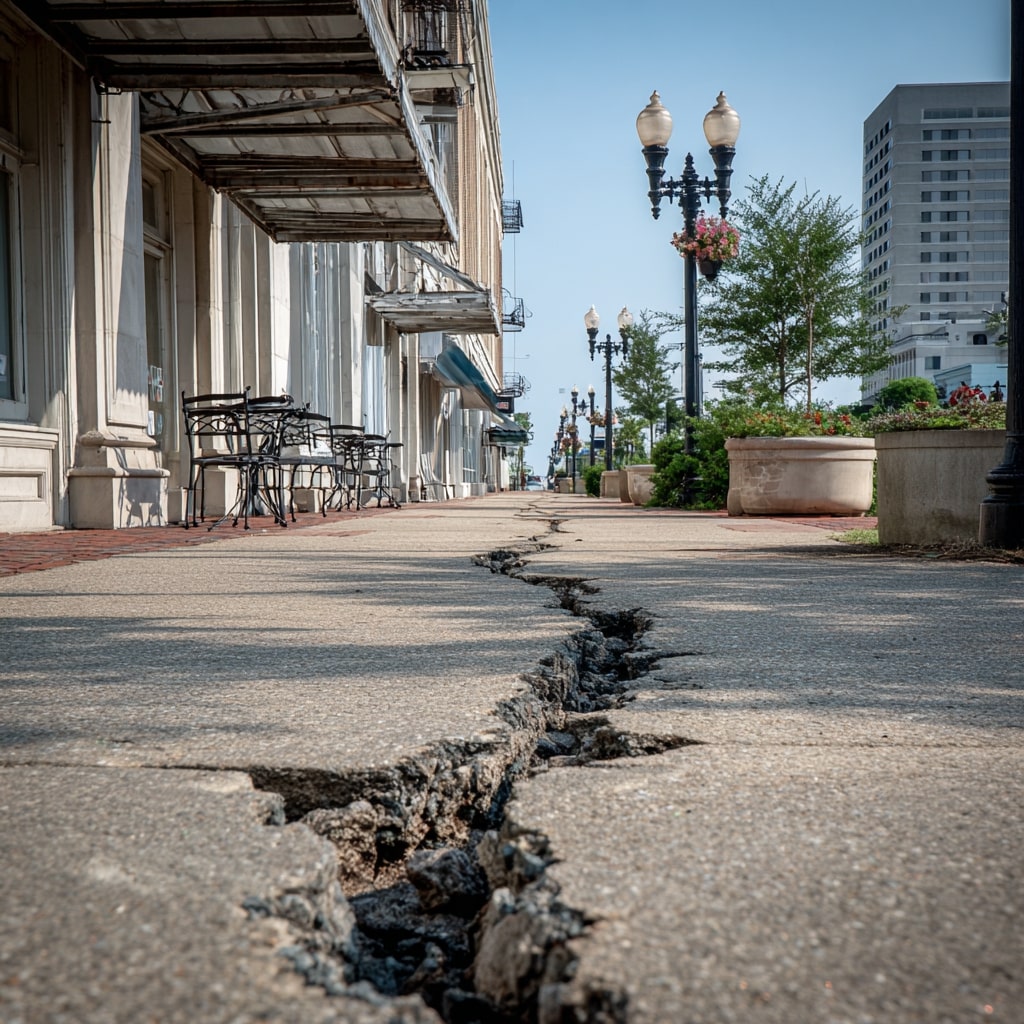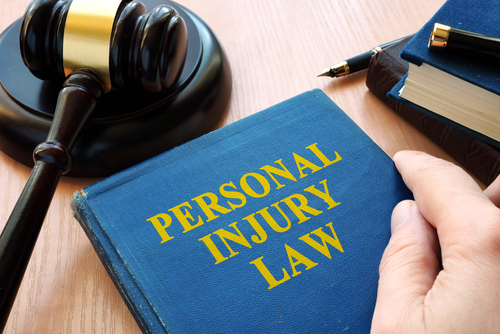When you’re injured on public property in Biloxi, Mississippi, due to the city’s negligence, the City of Biloxi, Harrison County, or the Mississippi Department of Transportation may be held responsible depending on who controls the specific property where your accident occurred.
You can sue these government entities under the Mississippi Tort Claims Act, but you must follow strict procedures, including serving a formal Notice of Claim within 90 days of your injury and filing your lawsuit within one year.
Government liability cases are more complex than standard personal injury claims because they involve sovereign immunity waivers, shorter deadlines, and damage caps. The responsible entity depends on whether your accident happened on city-maintained sidewalks and parks, county-controlled roads, or state highways like U.S. 90.
You’ll also need specific evidence proving the government entity knew or should have known about the dangerous condition that caused your injury.
Who May Be Liable For A Public Property Injury?
Multiple government entities might be responsible for your injury, depending on where it happened. Premises liability is the legal duty property owners have to keep their property reasonably safe. This means you need to identify the correct entity that controls the property where you got hurt.
City Of Biloxi And Its Departments
The City of Biloxi controls most public property within city limits. Different city departments handle different areas and responsibilities:
- Public Works: Maintains sidewalks, city streets, and drainage systems
- Parks and Recreation: Oversees city parks, playgrounds, and recreational facilities
- Facility Management: Responsible for city buildings, parking lots, and municipal properties
- Traffic Engineering: Controls traffic signals, crosswalks, and street signage
Harrison County And MDOT
Not all public property in Biloxi belongs to the city. Harrison County maintains certain roads and owns some public buildings. The Mississippi Department of Transportation (MDOT) controls major highways like U.S. 90 that run through the city.
You need to identify the correct entity because each has different notice requirements and procedures for filing claims.
Schools And Public Agencies
Other government entities might be liable depending on your accident location:
- Biloxi Public School District for injuries on school property
- Coast Transit Authority for bus stops and transit facilities
- Housing authorities for public housing complexes
- Port and harbor authorities for waterfront areas
Private Contractors On Public Projects
Private companies working on government projects can also be held responsible. If a contractor created the dangerous condition that caused your injury, you might have claims against both the contractor and the government entity. This can provide additional insurance coverage for your injuries.
When Is The City Immune And When Not?
The city cannot be sued for high-level policy decisions. This protection is called discretionary function immunity. This means the city is protected when making planning decisions like where to build roads or how to allocate budgets.
However, the city can be held liable for operational negligence. This covers the day-to-day maintenance and safety tasks that keep public property safe for visitors.
The key factor is whether the city had notice of the dangerous condition. Notice means they knew or should have known about the hazard and had reasonable time to fix it.
| City Is Protected (Immune) | City Can Be Sued |
| Deciding where to place stop signs | Failing to repair broken traffic signals |
| Choosing road design plans | Not fixing dangerous potholes |
| Budget allocation decisions | Ignoring broken playground equipment |
| Police response priorities | Allowing unsafe conditions in city buildings |
What Deadlines Apply To Claims Against A Mississippi City?
Government claims have much shorter deadlines than regular personal injury cases. Missing these deadlines permanently bars your claim, regardless of how strong your case might be.
One Year To File Under The MTCA
Deadlines apply to filing a lawsuit after an injury, so consult an attorney promptly to determine the applicable time limit. This deadline is shorter than the time limits that often apply to claims against private parties. The court will not extend this deadline for any reason.
Ninety Day Notice Of Claim Requirement
Before filing suit, you must serve a formal Notice of Claim on the responsible government entity. This written notice must describe your injury and explain how the government was at fault. You have only 90 days from your injury date to serve this notice.
After serving the notice, you may need to wait a period before filing your lawsuit—consult the applicable law or an attorney for the exact timing. This gives the government time to investigate and potentially settle your claim.
Who To Notify And How To Send Notice
Send your Notice of Claim to the chief executive of the responsible entity:
- City of Biloxi: Mayor or City Clerk
- Harrison County: Board President or Chancery Clerk
- MDOT: Executive Director in Jackson
Always use certified mail with return receipt requested. Keep your postal receipts as proof the notice was delivered.
What Should You Do After An Injury On Public Property?
The steps you take immediately after your accident can make or break your case. Your health comes first, but preserving evidence is also critical for proving your claim.
Seek Medical Care Now
See a doctor immediately, even if you feel fine. Some serious injuries like concussions or internal bleeding may not show symptoms right away. Medical records also create an official timeline linking your injuries to the accident.
Emergency room visits provide the strongest documentation, but urgent care or your family doctor also works.
Report And Create An Incident Record
Report your accident to the government department responsible for the property. Ask for a copy of any incident report or get the report number for your records. This creates an official record that the accident happened.
If police respond, get the police report number. If no report is made, document who you spoke with and when.
Document The Hazard And Scene
Take extensive photos and videos while you’re still at the scene. Focus on the specific defect that caused your fall or injury. Include these key shots:
- Multiple angles: Show the hazard from different perspectives
- Scale reference: Use your foot, keys, or a coin to show the size of cracks or holes
- Wide shots: Capture the surrounding area and any warning signs
- Lighting conditions: Show whether the area was poorly lit
Preserve Evidence And Witnesses
Get contact information from anyone who saw your accident. Write down their names and phone numbers while they’re still present. Note the location of any security cameras that might have recorded the incident.
Keep the shoes and clothing you were wearing in a safe place. Document the weather conditions and time of day when your accident occurred.
Avoid Recorded Statements And Social Media
Do not give recorded statements to government representatives or insurance adjusters without consulting an attorney first. These statements can be taken out of context and used against you later.
Avoid posting about your accident or injuries on social media. Insurance companies regularly monitor social media accounts and will use posts against you in court.
What Evidence Proves A City’s Negligence?
Winning your case requires proving the city knew or should have known about the dangerous condition. You need specific evidence showing the city had “notice” of the hazard that injured you.
Prior Complaints And Work Orders
Previous complaints about the same hazard provide the strongest evidence of actual notice. We can use public records requests to obtain complaint logs, work orders, and maintenance requests that show others reported the problem before your accident.
These records prove the city knew about the danger but failed to fix it in a reasonable time.
Maintenance Logs And Inspections
Government departments keep detailed records of their inspection and maintenance activities. These logs can show patterns of neglect or prove the city failed to follow its own safety procedures.
Missing inspections or deferred maintenance can demonstrate negligence even without prior complaints.
Video, 911, And Signal Timing Data
Modern technology provides powerful evidence for your case:
- Traffic cameras that recorded your accident
- Security cameras from nearby businesses or government buildings
- 911 call recordings reporting the hazard
- Traffic signal malfunction data
This evidence is often deleted quickly, so we must act fast to preserve it.
Weather And Lighting Conditions
Environmental factors can support your negligence claim. Weather reports can show that ice should have been cleared or storm damage should have been repaired. Inadequate lighting in parking lots or walkways can also constitute negligence, especially in high-crime areas.
How Comparative Fault Affects Your Recovery
Mississippi follows pure comparative negligence, which means you can recover damages even if you were partially at fault. Your compensation is reduced by your percentage of fault, but you don’t lose everything.
For example, if you win $100,000 but the judge finds you 30% at fault for not watching where you walked, you would receive $70,000. The government will try to blame you as much as possible to reduce what they have to pay.
Common fault allegations include texting while walking, ignoring warning signs, or wearing inappropriate footwear. Even obvious hazards don’t automatically bar recovery in Mississippi, but they can increase your fault percentage.
What Compensation Is Available Under The MTCA?
The MTCA allows you to seek compensation for your losses but places limits on certain damages. You can recover both economic and non-economic damages, but with important restrictions.
Economic damages have no cap and include:
- Past and future medical expenses
- Lost wages and reduced earning capacity
- Property damage costs
- Transportation and care expenses
Non-economic damages are capped and include:
- Pain and suffering
- Emotional distress
- Loss of enjoyment of life
- Disfigurement and scarring
Punitive damages are not available against government entities. Pre-judgment interest is also not allowed, unlike in cases against private parties.
Common Biloxi Public Property Hazards
Our Biloxi office gives us firsthand knowledge of the dangerous conditions that injure residents and visitors throughout the area.
Broken Sidewalks And Trip Hazards
Cracked and uneven sidewalks create serious fall risks that lead to slip and fall accidents throughout Biloxi. Downtown areas and older neighborhoods like the East Biloxi Historic District have particularly dangerous walkways. Tree roots often crack sidewalks, creating trip hazards the city fails to repair.
Howard Avenue and other busy corridors have sidewalks in poor condition that the city neglects to maintain properly.
Potholes, Shoulder Drop Offs, Faded Crosswalks
Road hazards are common on city streets throughout Biloxi. Pass Road and other heavily traveled routes develop dangerous potholes and edge drop-offs that can cause serious accidents.
Faded crosswalk markings are a major problem in the casino corridor along U.S. 90. Pedestrians struggle to see safe crossing areas, especially at night.
Malfunctioning Signals Or Poor Lighting
Traffic signal malfunctions at busy intersections can cause devastating crashes. Poor lighting in public areas creates both accident risks and crime opportunities.
City parking lots, beach access points, and park areas often have inadequate lighting that makes them dangerous after dark, and victims of accidents in these areas should consult an attorney from Maloney-Lyons Personal Injury & Car Accident Lawyers to understand their rights.
Park And Boardwalk Maintenance Failures
Biloxi’s beautiful public spaces require constant maintenance due to salt air and storm damage. The Biloxi Town Green, beach boardwalks, and waterfront areas develop hazards when the city defers maintenance.
Rusted railings, loose boards, and broken playground equipment can cause severe injuries when not properly maintained.
Mistakes That Can Hurt Your Claim
Several common mistakes can destroy your chances of recovering compensation, even with a strong case.
Missing The Notice Of Claim Deadline
Failing to serve your Notice of Claim within 90 days is the most devastating mistake. This deadline is absolute with no exceptions. Even one day late means you lose your right to sue forever.
Not Identifying The Correct Government Entity
Suing the wrong entity wastes precious time and can cause you to miss deadlines for filing against the correct party. The City of Biloxi is not responsible for state highways or county-maintained roads.
Research is essential to identify which government body actually controls the property where you were injured.
Posting About The Accident Online
Social media posts can destroy your case. Photos showing you active or posts saying you’re “doing fine” will be used against you in court. Insurance adjusters actively search social media accounts for damaging evidence.
Avoid posting anything about your accident, injuries, or activities until your case is resolved.
Delaying Medical Care Or Follow Up
Gaps in medical treatment give the defense ammunition to argue your injuries weren’t serious or weren’t caused by the accident. Always follow your doctor’s recommendations and attend all appointments.
Missing appointments or stopping treatment early can cost you thousands in compensation.
Injured On Public Property In Biloxi? Get Legal Help Today
Government claims under the Mississippi Tort Claims Act are complex and unforgiving. The short deadlines and technical requirements make it essential to work with an experienced attorney who understands these unique cases.
At Maloney-Lyons Personal Injury & Car Accident Lawyers, you work directly with experienced personal injury attorneys from start to finish. We don’t hand your case off to paralegals or case managers. Our commitment to personal attention means you always know exactly what’s happening with your claim.
With offices in both Biloxi and Mobile, we have deep roots in the Gulf Coast community. We understand the local government entities, their procedures, and how to build winning cases against them.
We handle all government liability cases on a contingency fee basis. This means you pay nothing unless we win your case. Contact us today for your free consultation to discuss your public property accident and protect your rights.
Frequently Asked Questions
Do I Need To File A Notice Of Claim Before Suing Biloxi?
Yes, Mississippi law requires you to serve a formal written Notice of Claim on the government entity within 90 days of your injury. You must wait an additional 90 days after serving this notice before filing your lawsuit.
Where Do I Send A Notice Of Claim For Biloxi City Accidents?
Send your Notice of Claim to the Mayor of Biloxi or the City Clerk via certified mail with return receipt requested. Keep your postal receipts as proof the notice was properly delivered.
What Is The Damage Cap For Suing Mississippi Cities?
The MTCA places caps on non-economic damages like pain and suffering, but there is no limit on economic damages like medical bills and lost wages. The caps change periodically based on inflation adjustments.
Can I Sue MDOT Instead Of Biloxi For Highway Accidents?
Yes, if your accident occurred on a state-maintained highway like U.S. 90, the Mississippi Department of Transportation would be the proper defendant instead of the City of Biloxi.
What If A Private Contractor Caused My Public Property Injury?
You can often sue both the contractor and the government entity that hired them. This provides access to multiple insurance policies and can significantly increase your potential recovery.
Can I Still Recover If The Storm Just Caused The Hazard?
The government gets reasonable time to discover and repair storm-related hazards. Your ability to recover depends on how much time passed between the storm and your accident and whether the city’s response was reasonable under the circumstances.
Can I Recover Compensation If I Was Partially At Fault?
Yes, Mississippi’s pure comparative negligence law allows recovery even when you share fault. Your compensation is simply reduced by your percentage of fault as determined by the judge.
Will A Jury Decide My Case Against The City Of Biloxi?
No, all Mississippi Tort Claims Act cases are decided by a judge in a bench trial. You do not have the right to a jury trial when suing government entities under the MTCA.





